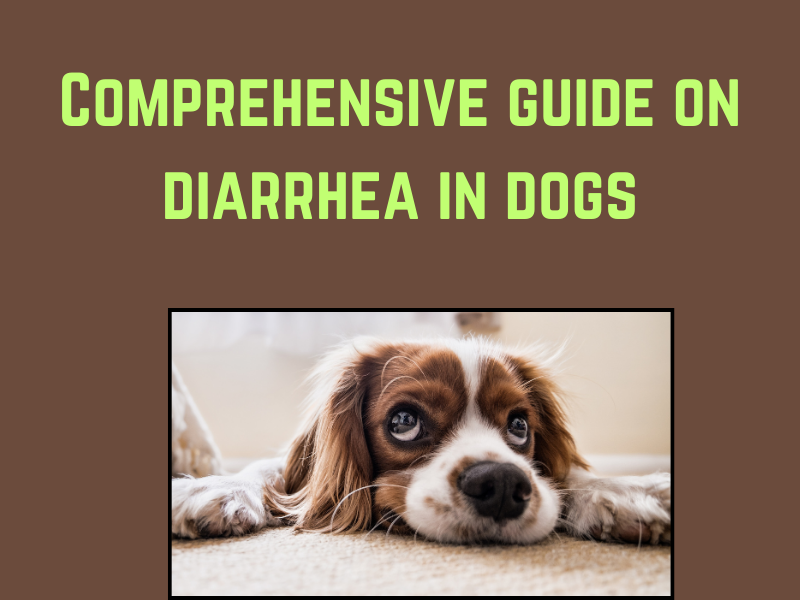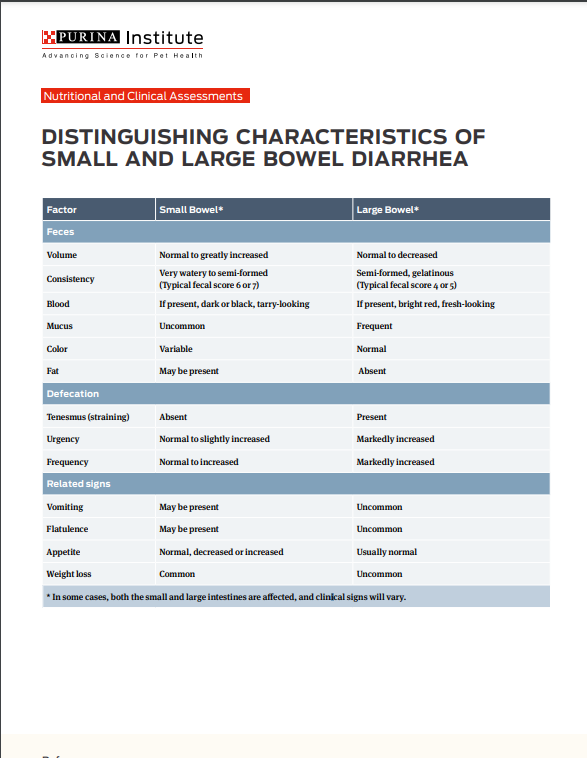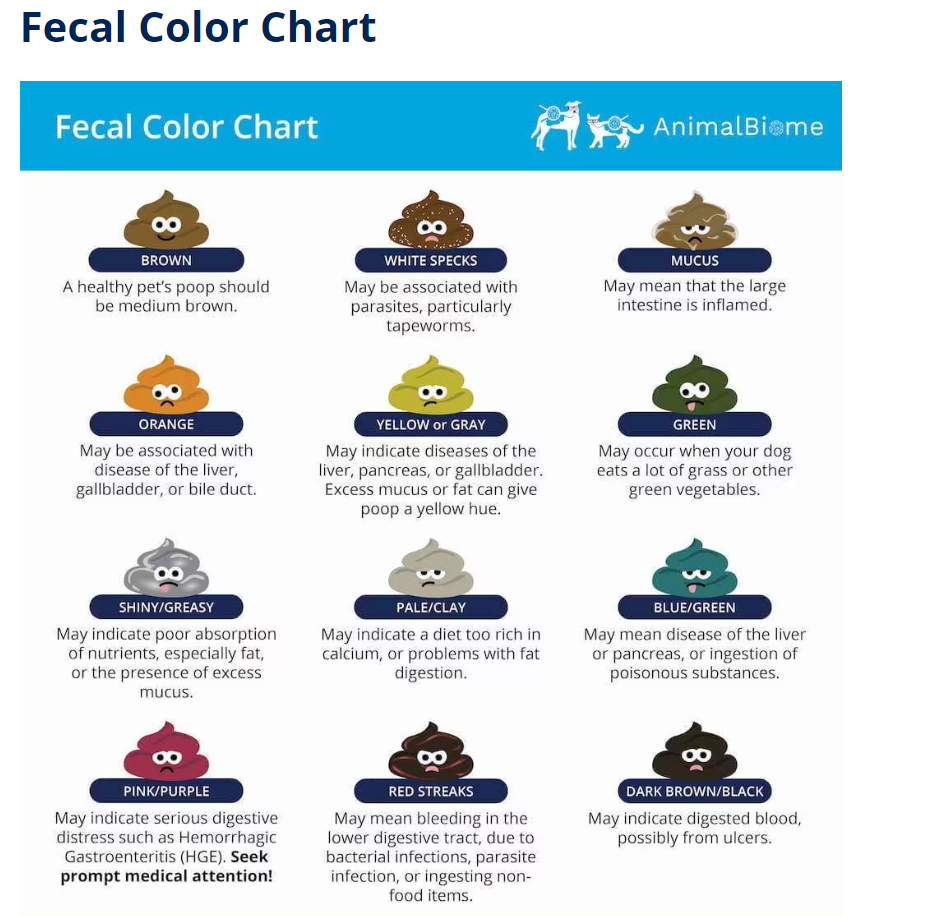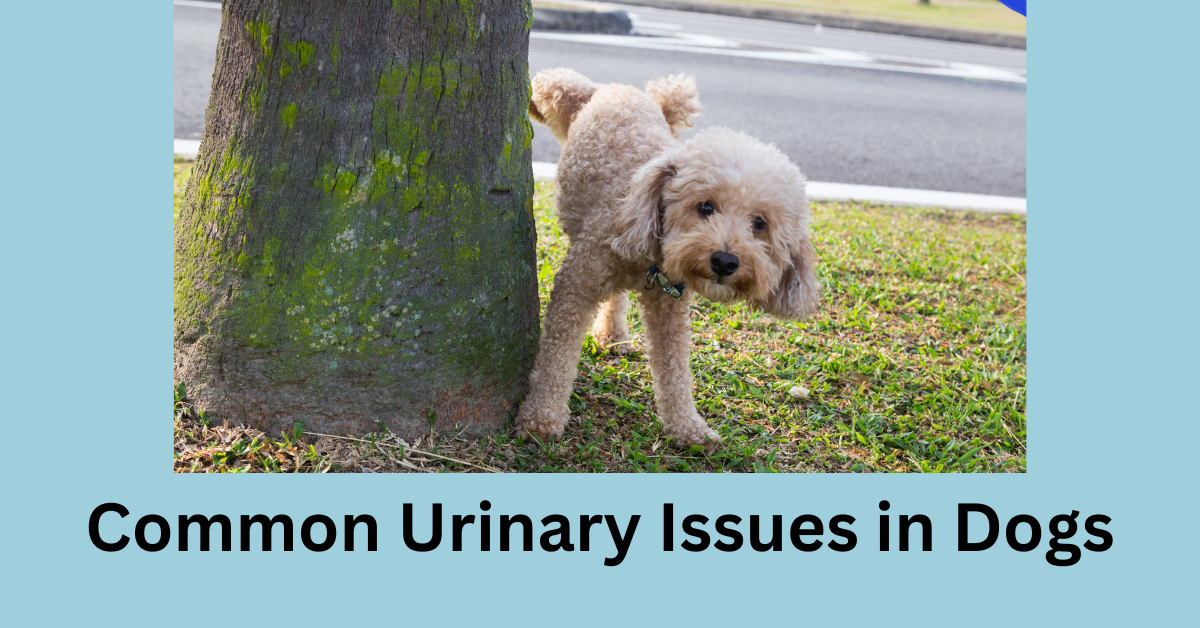
Diarrhea is an increase in bowel movement which results in an increased volume of feces, high fluid in the feces and most importantly, higher defecation frequency. One of the common symptoms of gastrointestinal upset is diarrhea which is frustrating for owner as well as the dog of course.
If a dog is having one episode of diarrhea sometimes, and doing well otherwise, there is no need to worry about but if the dog is having multiple episodes of diarrhea then consult a veterinarian. If a pup is less than 8 months and has acute diarrhea then consult the veterinarian right away. In this article, you will learn about diarrhea, its causes, other related symptoms and what to do if the dog has diarrhea.
Symptoms associated with diarrhea
There are various signs and symptoms which could be associated with diarrhea
- Dehydration
- Abdominal pain
- Abdominal distention
- Blood in stools
- Mucus in stool
- straining
- Increased drinking and eating
- Vomiting
- Weight loss
Acute diarrhea
Based on the duration, diarrhea can be considered acute, If it starts suddenly and for less than 14 days
There are various causes of acute diarrhea
- Parasitic: The two most common parasites are Toxocara and Giardia.Others are roundworm, whipworm
- Dietary cause: sudden diet change, event of scavenging, raw cooked diet, eating other animal food
- Medicine: antibiotics, steroids, heart medication, chemotherapeutic(anti-cancerous)
- Bacterial causes: campylobacter, clostridium, salmonella, yersinia
- Systemic diseases: acute liver disease, pancreatitis, acute renal failure, salmon poisoning, Addison disease.
- Foreign body: some dogs have a habit of eating non-food items such as rope, stones, or other non-edible items.
- Viral causes: parvovirus, distemper virus, coronavirus
- Other causes: idiopathic, acute colitis, enterotoxin
Chronic diarrhea
If the dog has diarrhea more than 2 or 3 weeks, it is considered chronic diarrhea. This type of diarrhea is non-responsive to antibiotics if treated. Most pet owners get frustrated to this kind of diarrhea because they want a quick solution but the animal is not recovering from the sickness.
The causes of chronic diarrhea are
- Parasitic: Giardia
- Food allergy
- Cancer such as intestinal lymphoma
- Inflammatory bowel disease
- Stress or anxiety
- Hyperthyroidism
- Exocrine pancreatic insufficiency
In chronic diarrhea, there are further two types
Small bowel diarrhea
Small bowel diarrhea is due to small intestine. Increased amount of stool with no straining is noted in this type of diarrhea. This type may cause increased appetite, poor coat, and weight loss.

Large bowel diarrhea
As the name indicates, it originates from the large intestine. In this case, stools were small and higher frequency with more straining. Blood can be found in this type of diarrhea.
When to worry about diarrhea?
Some dogs with diarrhea usually resolve independently but some animal need antibiotic treatment. There are following points when veterinary intervention is needed

- Diarrhea with other signs:
if dog suffer from other problems with diarrhea such as abdominal pain, lethargy, fever, or vomiting, consultation with a veterinarian must be done
- Underlying problems:
Many underlying conditions can coexist which can worsen the situation. Proper diagnosis is needed by consulting veterinarian
- Blood in stools:
- Pups and old age dogs
Puppies are more prone of parasitic and parvovirus causes and old age dogs are at higher risk of cancer.
Vomiting with diarrhea:
Vomiting is one of the common signs that can be seen with diarrhea. When dog is having foreign body ingestion, dog might start vomiting as well. Also, if a dog gets high-fat meal or treats, there are more chances of pancreatitis in which vomiting is a sign along with diarrhea. In pancreatitis, inflammation occurs in pancreas which cause abdominal discomfort and pain.
Types of diarrhea in dog

- Yellow diarrhea
Liver or bile issues can cause yellow diarrhea
- Black diarrhea/stools
It indicates upper Gastrointestinal upset in dogs
- Blood in diarrhea
If there are mild blood which can indicate any injury in rectum or anus area
If there is blood in the diarrhea it can indicate hemorrhagic gastroenteritis which is an emergency condition and need to see a veterinarian right away.
Diagnostic for diarrhea
There are a lot of diagnostics which can be used to diagnose the cause of diarrhea but decisions for those diagnostics are mostly based on the history, physical examination, and clinical signs.
- Fecal floatation test can be used to check the intestinal parasite
- Fecal culture is used to know the bacterial cause of the diarrhea
- Giardia test is used for the giardia parasite mostly in young animals
- Parvo snap test is used to diagnose the parvo virus, which is deadly viral diarrhea in puppies
- Blood chemistry and complete blood count are used to rule out any metabolic, inflammation and anemia
- Canine pancreas-specific lipase used for pancreatitis in dogs
- Radiography and ultrasound used for the foreign body, obstruction, and inflammatory bowl disease.
Management of diarrhea in dogs:
- If the dog is having diarrhea, do not feed him for 12 to 24 hours so that its intestines get settled. The dog should drink a lot of water during the withholding time.
- Offer low-fat high-fiber food such as boiled hamburger, or skinless chicken with plain cooked rice.
- Offer a small amount of food in short intervals
- Probiotics can be added to the diet to help restore the intestines
- Avoid unnecessary use of antibiotics otherwise normal flora of the intestine may get disturbed.
- Canned pumpkin can be added as it contains high fiber.
Treatment cost for dog diarrhea in Canada
- The cost of the treatment for diarrhea depends on the diagnostic and treatment plan. The average cost for an uncomplicated case is
- Veterinary Visits: 100-200 CAD
- Medication: 100-200 CAD,
- Diagnostics, 300-500 CAD
- The treatment cost for a complicated case is higher and depends upon whether surgical intervention is going to be made or if the animal needs to stay in the clinic.





3 thoughts on “Comprehensive guide on diarrhea in dogs”